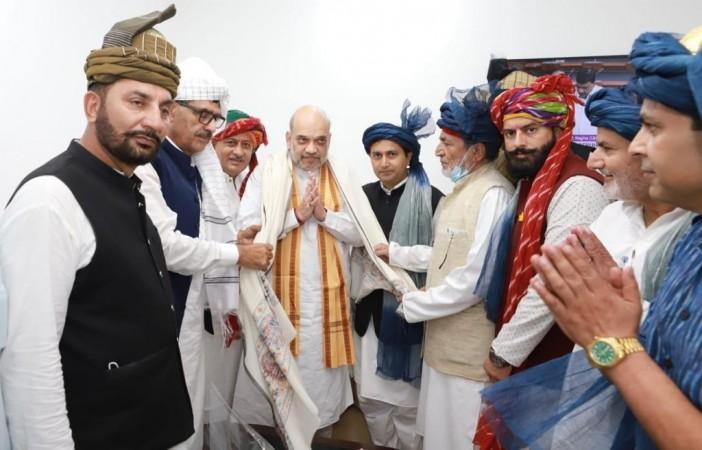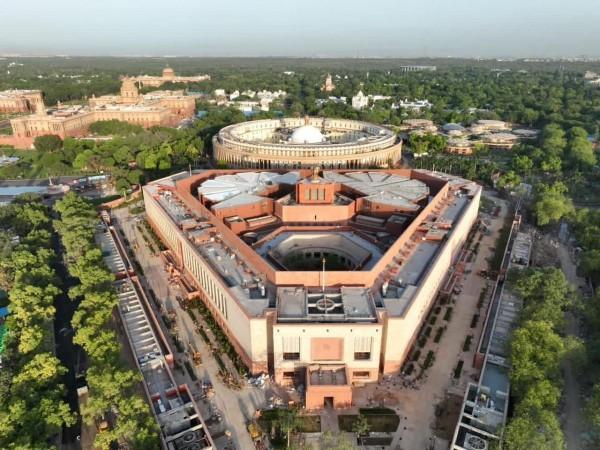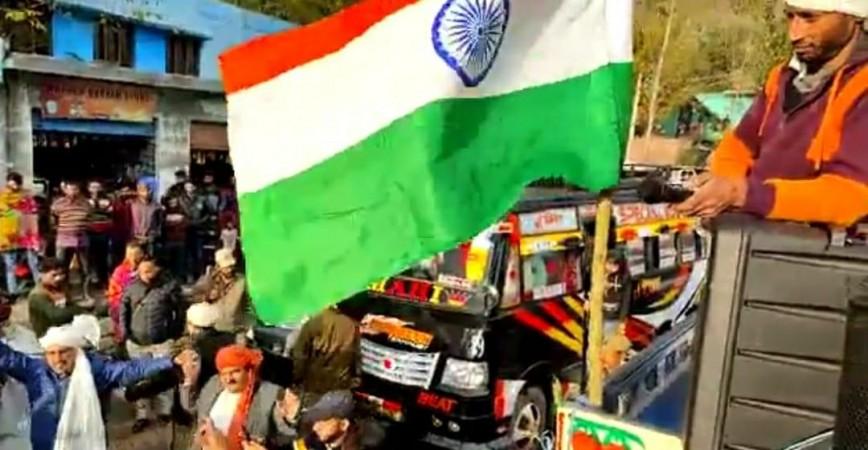
Notwithstanding opposition by some sections of society, the Lok Sabha passed the much-awaited "Constitution (Jammu and Kashmir) Schedule Tribes Order (Amendment) Bill, 2023".
After the passing of this much-publicized bill, the "Pahari ethnic group," "Paddari Tribe," "Koli," and "Gadda Brahman" communities will be included in the Scheduled Tribe List of the Union Territory of Jammu and Kashmir.
The historic bill was introduced in Parliament by Arjun Munda, the Minister of Tribal Affairs, on July 17, 2023.

New communities incorporated in J&K's ST list under Article 342
While introducing the Bill, the Minister stated that Scheduled Tribes have been defined in clause (25) of Article 366 of the Constitution as such tribes or tribal communities or parts of or groups within such tribes or tribal communities as are deemed under Article 342 to be Scheduled Tribes for the purposes of the Constitution.
In accordance with the said constitutional provisions, the first list of Scheduled Tribes in respect of the erstwhile State of Jammu and Kashmir was notified vide the Constitution (Jammu and Kashmir) Scheduled Tribes Order, 1989.
The said list of Scheduled Tribes was amended vide the Constitution (Scheduled Tribes) Order (Amendment) Act, 1991.
By virtue of the provisions of the Jammu and Kashmir Reorganisation Act, 2019, the said list of Scheduled Tribes, presently applies to both the Union territory of Jammu and Kashmir and the Union territory of Ladakh.
List of tribes in ST list of J&K
1. Bakarwal
2. Balti
3. Beda
4. Bot, Boto
5. Brokpa, Drokpa, Dard, Shin
6. Changpa
7. Gadda Brahmin
8. Gaddi
9. Garra
10. Gujjar
11. Koli
12. Mon
13. Paddari Tribe
14. Pahari Ethnic Group
15. Purigpa
16. Sippi.
The Administration of the Union territory of Jammu and Kashmir has requested to include the communities of "Gadda Brahmin," "Koli," "Paddari Tribe," and "Pahari Ethnic Group" in the list of Scheduled Tribes in respect of the Union territory of Jammu and Kashmir.
The Constitution (Jammu and Kashmir) Scheduled Tribes Order (Amendment) Bill, 2023 passed in #LokSabha.@Loksabhaspeaker @sansad_tv @MundaArjun#BudgetSession #BudgetSession2024 #Parliament
— LOK SABHA (@LokSabhaSectt) February 6, 2024
On the basis of the recommendation of the Administration of the Union territory of Jammu and Kashmir and after consultation with the Registrar General of India and the National Commission for Scheduled Tribes, it is proposed to amend the Constitution (Jammu and Kashmir) Scheduled Tribes Order, 1989.
Accordingly, the Constitution (Jammu and Kashmir) Scheduled Tribes Order (Amendment) Bill, 2023, proposes to amend the Constitution (Jammu and Kashmir) Scheduled Tribes Order, 1989, to include the communities of "Gadda Brahmin," "Koli," "Paddari Tribe," and "Pahari Ethnic Group" in the list of Scheduled Tribes in respect of the Union territory of Jammu and Kashmir.

In November 2022 NCST cleared the inclusion of new castes in J&K's ST list
The National Commission for Scheduled Tribes (NCST) approved inclusion of new "tribes" in the existing Scheduled Tribes list of the Union Territory of Jammu and Kashmir. The NCST in November 2022 cleared the way for the inclusion of the "Pahari ethnic group", "Paddari Tribe", "Koli" and "Gadda Brahman" communities to be included in the ST list of J&K.
The NCST had examined the proposal received from the Ministry of Tribal Affairs. The NCST supported the proposal based on the recommendation of the Office of the Registrar General of India.
The suggestion for inclusion had come from the commission set up for socially and educationally backward classes in the Union Territory, headed by Justice (Retd.) G.D. Sharma.
Amit Shah had promised to grant ST status to Paharis in October 2022
While addressing a rally at the border town of Rajouri of Jammu and Kashmir on October 4, 2022 Union Home Minister Amit Shah had promised that the Pahari-speaking people of Jammu and Kashmir will get Scheduled Tribe (ST) status. He, however, announced that ST status would be granted to Paharies, but not at the cost of the rights of existing scheduled tribes of the Union Territory.
The Union Minister assured like Gujjar and Bakerwals, Paharis will also get ST status as it was the long pending demand of this community. He, however, assured Gujjars and Bakerwals that this decision would not dilute the rights of the communities that are already enjoying the ST status.
"There will be no effect on the reservation of Gujjars and Bakewals even by one percent," Shah had assured.
The Gujjars, who already have a reservation under the ST category, had apprehensions that granting the ST status to the Paharis would dilute their quota.















